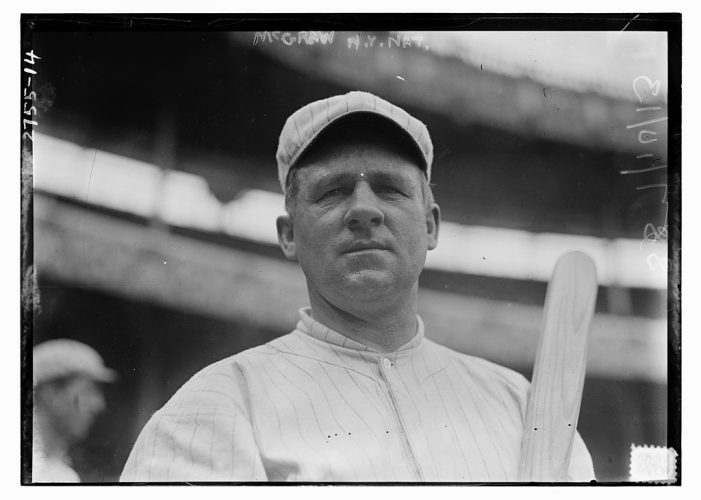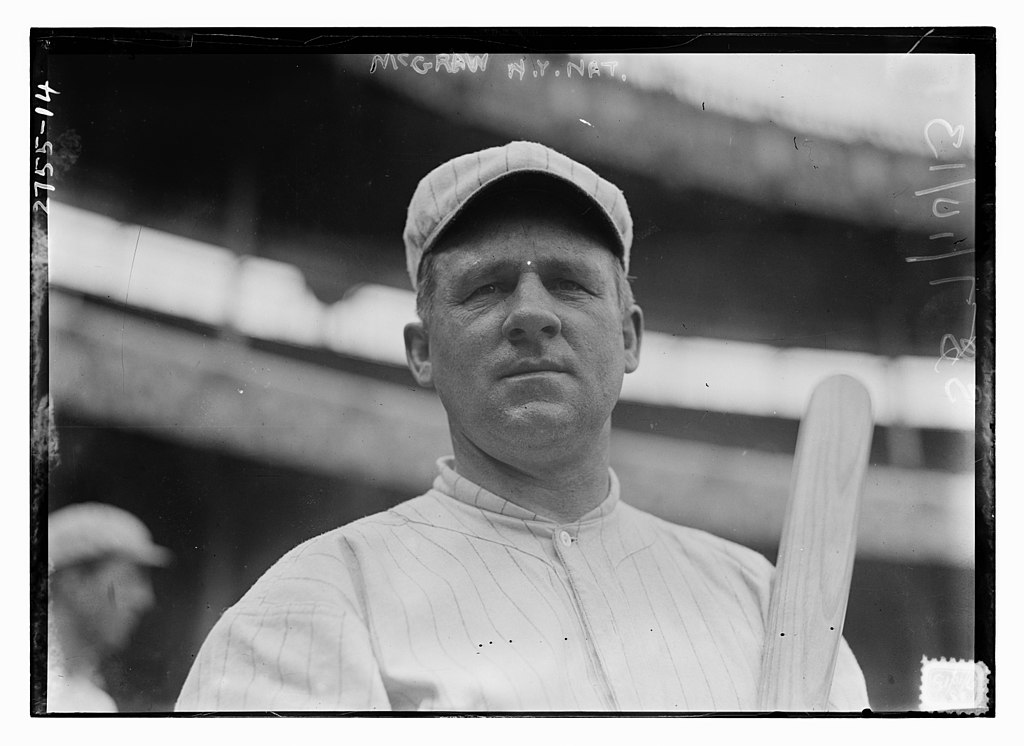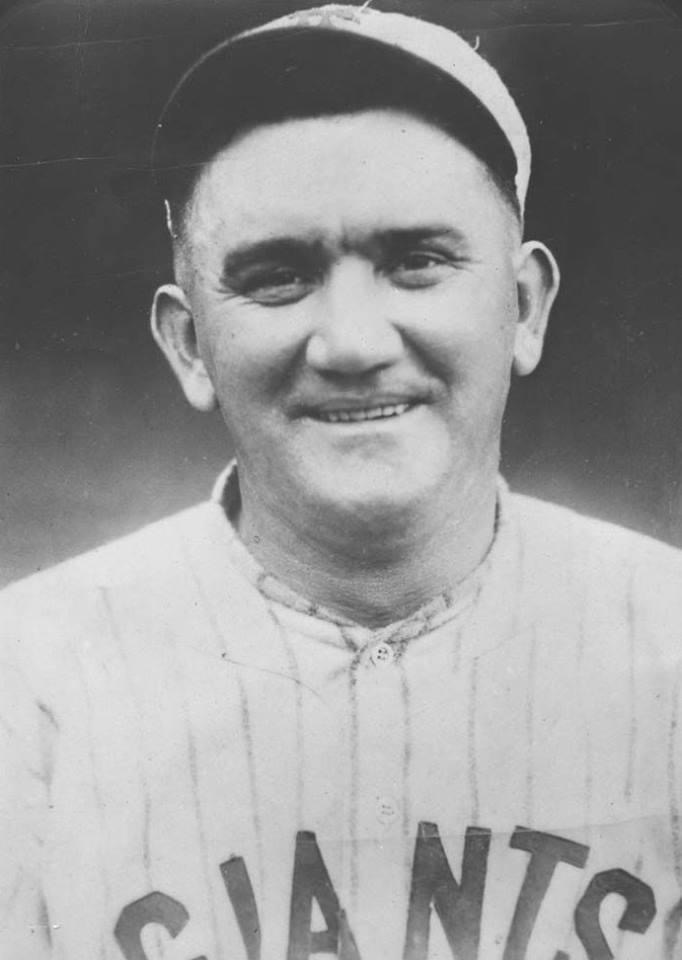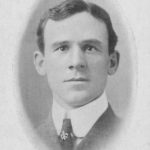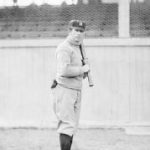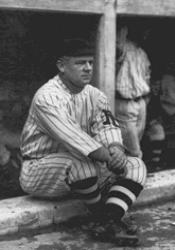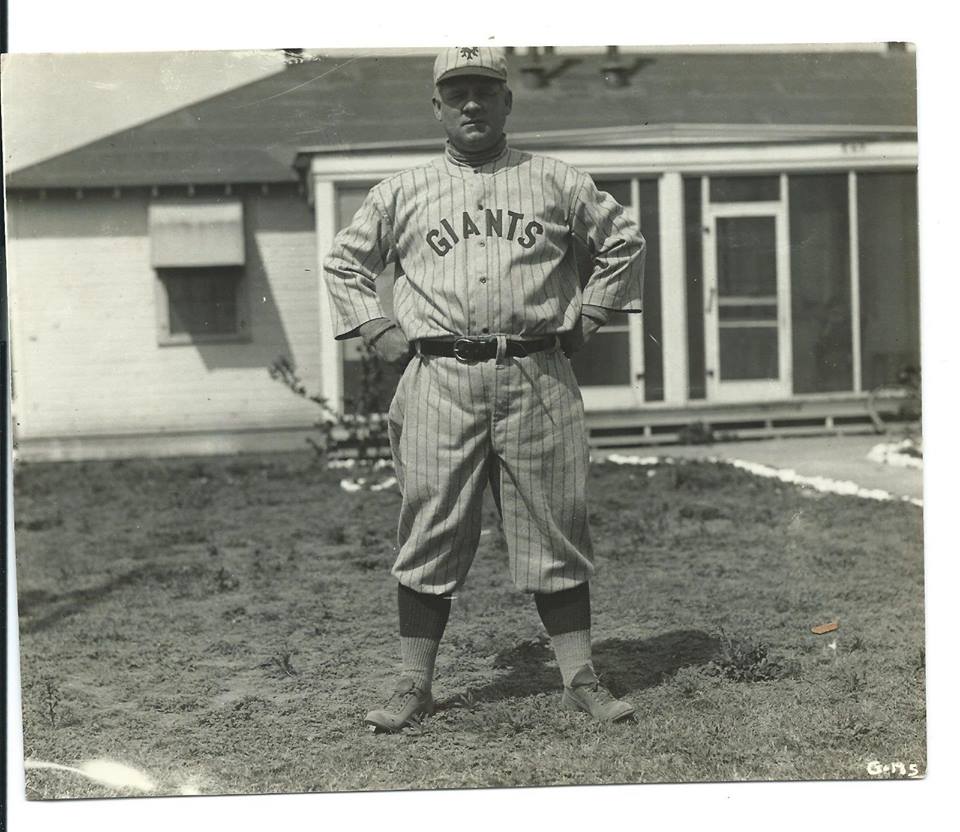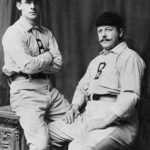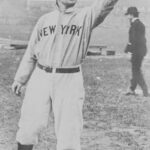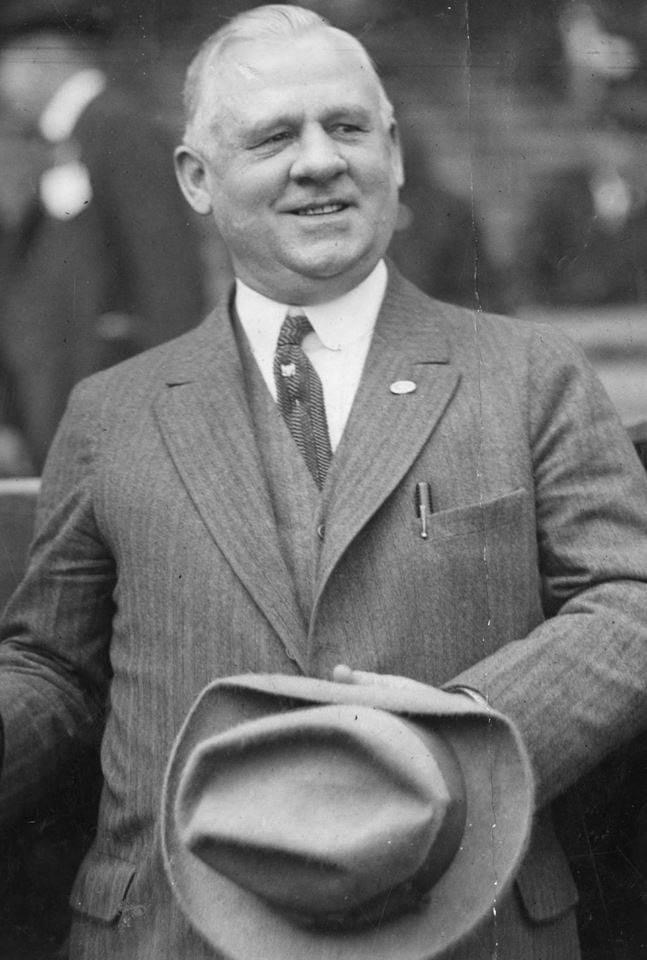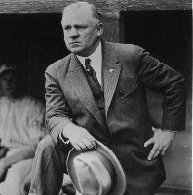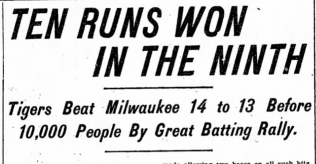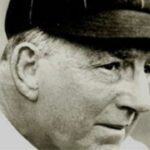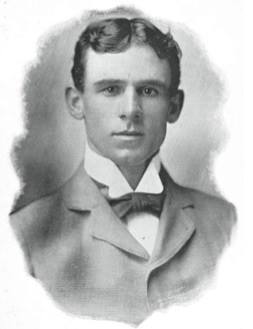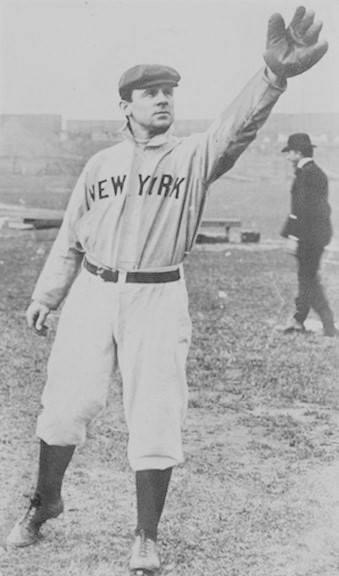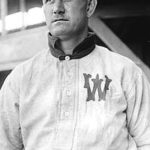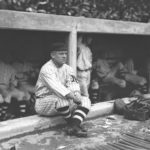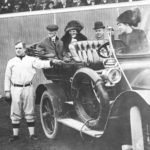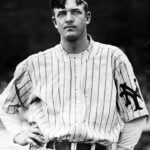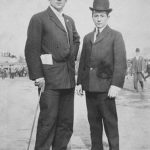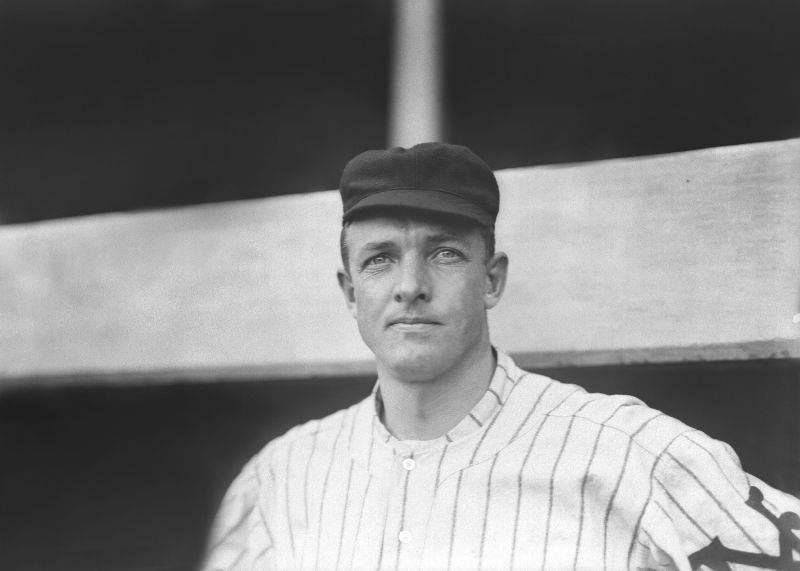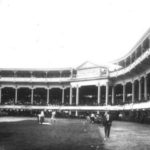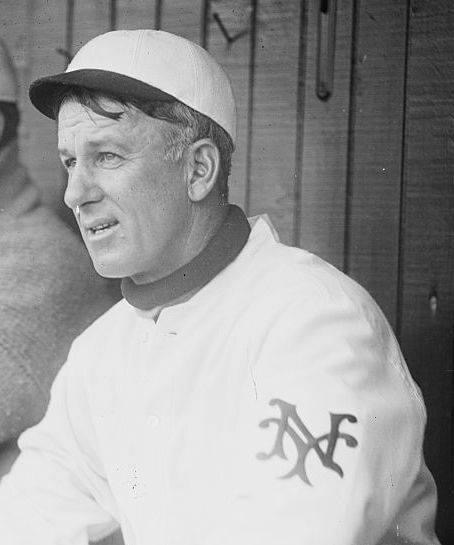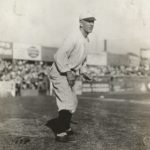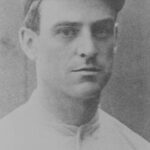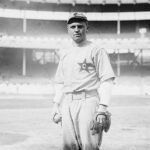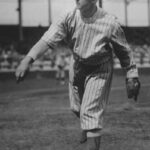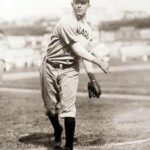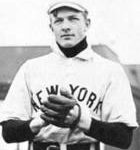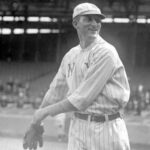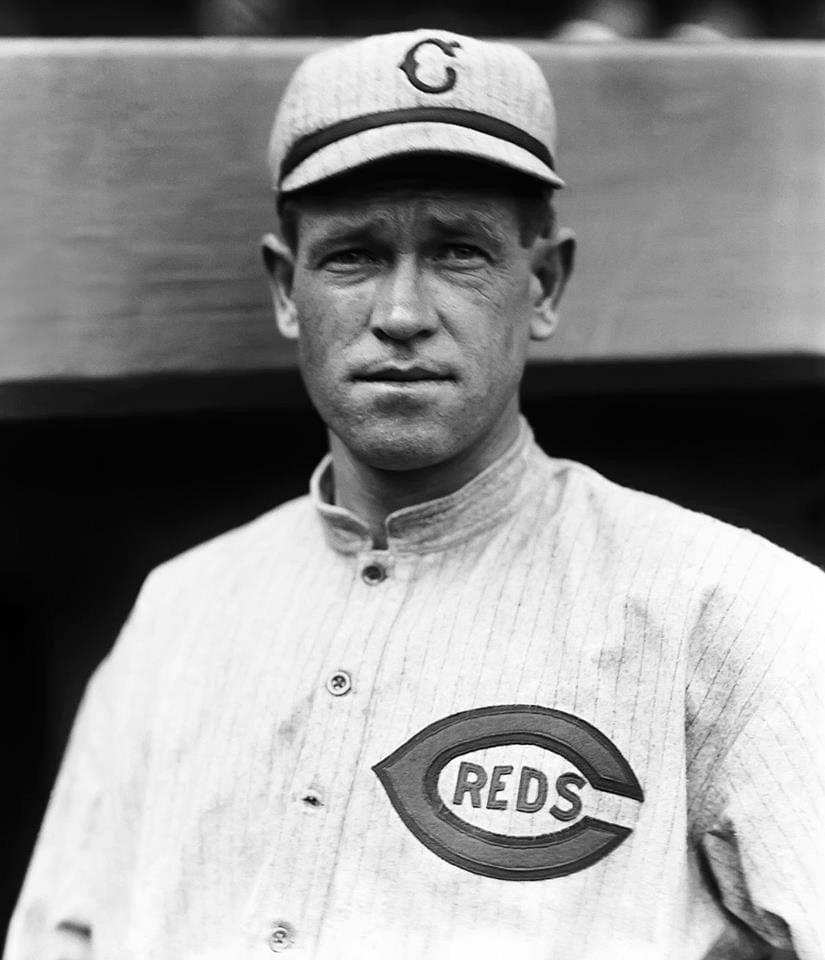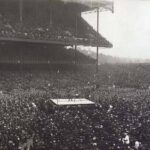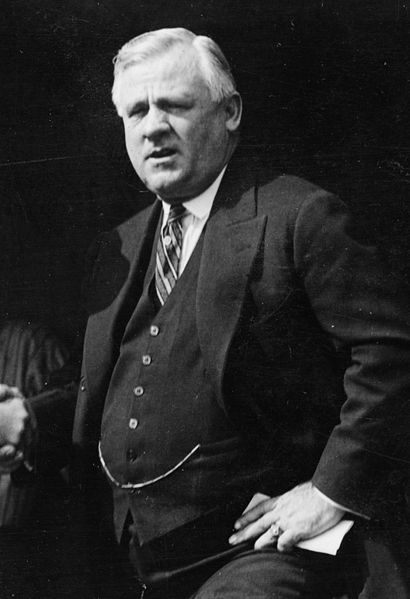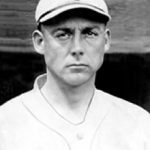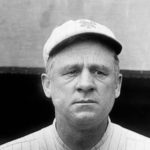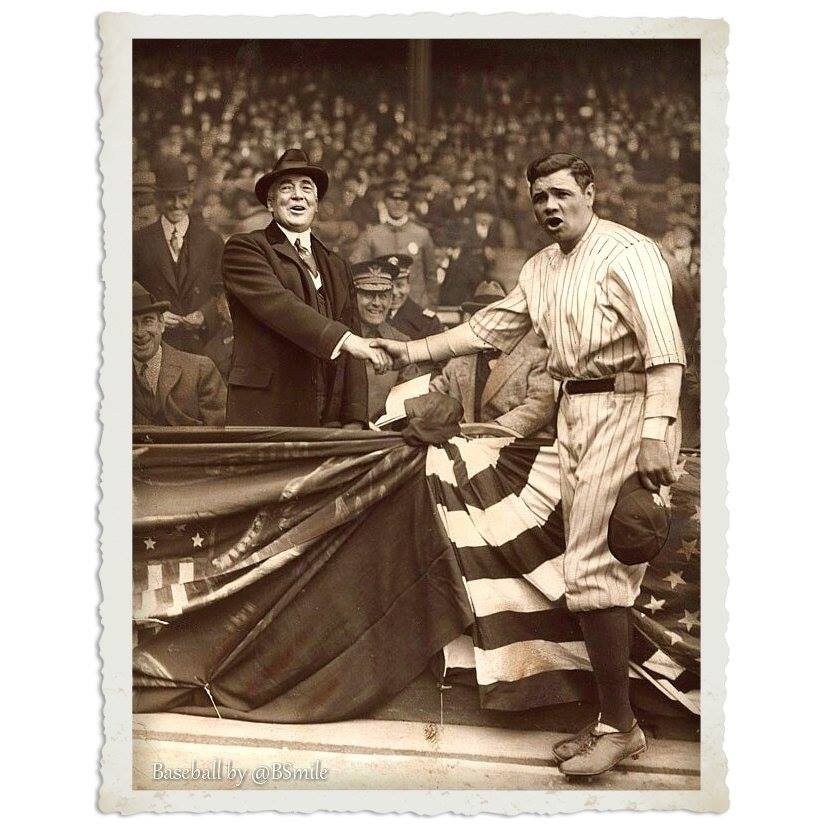John McGraw
Positions: Third Baseman, Shortstop and Outfielder
Bats: Left • Throws: Right
5-7, 155lb (170cm, 70kg)
Born: April 7, 1873 in Truxton, NY
Died: February 25, 1934 in New Rochelle, NY
Buried: New Cathedral Cemetery, Baltimore, MD
School: St. Bonaventure University (St. Bonaventure, NY)
Debut: August 26, 1891 (1,641st in major league history)
Last Game: June 18, 1907
vs. CIN 0 AB, 0 H, 0 HR, 0 RBI, 0 SB
Hall of Fame: Inducted as Manager in 1937. (Voted by Centennial Committee)
Induction ceremony in Cooperstown held in 1939.
View John McGraw’s Page at the Baseball Hall of Fame (plaque, photos, videos).
Full Name: John Joseph McGraw
Nicknames: Mugsy or Little Napoleon
Players Who Debuted Same Year
Coming Soon
The John McGraw Teammate Team
C: Roger Bresnahan
1B: George Kelly
2B: Frankie Frisch
3B: Freddie Lindstrom
SS: Art Fletcher
LF: George Burns
CF: Fred Snodgrass
RF: Ross Youngs
SP: Christy Mathewson
SP: Joe McGinnity
SP: Rube Marquard
SP: Carl Hubbell
SP: Jesse Barnes
RP: Doc Crandall
Notable Events and Chronology
For many years John McGraw was the dominant figure in American baseball. He was an excellent player – certainly the best ever to become a great manager – yet his success derived from more than athletic talent. He had a profound understanding of the game and was alert to all the opportunities each inning offered. “The main idea,” he always said, “is to win.”
His personality was indeed that of a “Little Napoleon”: arrogant, abrasive, and pugnacious. He outgeneraled his opponents while abusing them verbally and, sometimes, with his fists. His players suffered his tyranny as the price of victory, proud to be Giants. In his 29 full seasons as Giants manager he finished first or second 21 times, winning 10 pennants and three World Series.
Biography
McGraw’s rise to prominence was swift. A scrawny youngster from Truxton, New York, he began his professional career at Olean (New York-Penn League) in 1890 and within a year had jumped to the American Association’s Baltimore club. When the American Association collapsed after 1891, Baltimore was absorbed into the National League and McGraw became a member of the soon-to-be-legendary Orioles.
Although his ML playing career spanned 16 seasons, McGraw was at his best as Ned Hanlon’s fiery third baseman in Baltimore, a star on a team that won three consecutive titles from 1894 to 1896. A lefthanded batter, he was an adroit bat handler who could hit for average, batting over .321 nine consecutive seasons. He twice led the league in runs and walks and stole 436 bases. He and Willie Keeler were experts at the hit-and run play.
McGraw was notorious for blocking, tripping, or otherwise obstructing the baserunners while the lone umpire watched the flight of the ball. Some say his shenanigans prompted the stationing of additional umpires on the basepaths.
There then began a period in which he successfully opposed the baseball “establishment” at every opportunity. Barely 26 in 1899, he refused to be shifted to Brooklyn, which the Baltimore club partially owned and wanted to strengthen. While manager Hanlon and five Orioles starters led Brooklyn to the championship in 1899 and 1900, McGraw and catcher Wilbert Robinson remained behind in Baltimore, where they owned a profitable saloon together. McGraw was named manager of the leftover Orioles and led them to third place. The Orioles were disbanded when the NL reduced to eight teams in 1900, and McGraw and Robinson were sold to St. Louis. They agreed to go only on the condition that the reserve clause be removed from their contracts, an unheard-of concession. In 1901 he became player-manager of the new American League’s Baltimore franchise, but after frequent run-ins with league president Ban Johnson, a man as intractable as himself, he jumped in mid-1902 to the NL’s New York Giants.
McGraw brought Robinson, Roger Bresnahan, Dan McGann, and Joe McGinnity with him to New York, and found Christy Mathewson already there. With the ample financial resources of new owner John T. Brush, McGraw quickly turned a floundering second-division team into a contender, winning a then-record 106 games and the pennant in 1904. McGraw and Brush refused to allow the club to meet the AL champion Red Sox in the WS (the first Series had been played the year before), however. In 1905 McGraw’s Giants won a second consecutive NL pennant, finishing 105-48, and this time they did play the WS. They whipped the Athletics in five games behind Mathewson’s three shutouts.
McGraw’s managerial style was reminiscent of his antics as a player. He swaggered through every city in the league, battling opposing teams, managers, owners, umpires, and league officials. He had a genius for inciting crowds and the Giants quickly became the most despised team in the league, often dodging rocks and bottles as they left enemy ballparks. In 1906 McGraw arrogantly had “Champions of the World” emblazoned across the front of the team’s jerseys.
Strategically, McGraw favored the hit-and-run and disdained the sacrifice bunt. He had a sharp eye for playing talent and traded daringly, getting useful work from drinkers and neurotics other clubs had given up on. And with tips from his many friends in bush leagues across the country, he found bright young stars to replace fading older ones.
McGraw’s Giants won three consecutive pennants from 1911 to 1913, but lost the WS all three years, twice to the Athletics and once to the Red Sox. The 1912 WS featured Fred Snodgrass’s famous dropped fly ball, which allowed the Red Sox to rally for two runs in the 10th inning of the final game. McGraw lost another WS to the White Sox in 1917, then rattled off four consecutive pennants beginning in 1921. By then, the Yankees were emerging as an AL dynasty, but the Giants beat their Bronx rivals in 1921 and 1922, before the Yankees returned the favor in 1923.
McGraw unwittingly hastened his own demise by urging wealthy Jake Ruppert to buy the Yankees, ushering in the Ruthian long-ball era. The Yankees quickly established themselves as the city’s dominant team, and the Giants were overtaken by the Pirates, Cardinals, and Cubs in their own league. In 1932 McGraw surrendered the manager’s reins to Bill Terry, retiring with 2,840 victories. He returned in 1933 to manage the NL squad in the inaugural All-Star Game.
Factoids, Quotes, Milestones and Odd Facts
Played For
Baltimore Orioles, American Association (1891)
Baltimore Orioles, National League (1892-1899)
St. Louis Cardinals (1900)
New York Giants (1902-1906)
Managed
Baltimore Orioles, National League (1899)
New York Giants (1902-1932)
Similar: Cecil Travis (player)… Kid Gleason, Wilbert Robinson, Hughie Jennings, and Frankie Frisch (managers)
Linked: Willie Keeler, Joe Kelley, Ned Hanlon, Hughie Jennings, Wilbert Robinson, Christy Mathewson, Roger Bresnahan, Hal Chase, Ross Youngs
Best Season, 1905
McGraw’s first World Championship team, this club was led by the pitching staff. They had three aces: Christy Mathewson (31-9, 1.28), Joe McGinnity (21-15, 2.87) and Red Ames (22-8, 2.74). Yet the offense was formidable as well, leading the National League in runs scored (5.03 per) behind a .273 average and league-best 291 stolen bases. Seven players stole at least 20 bases, led by third baseman Art Devlin (59), right fielder Sam Mertes (52), shortstop Bill Dahlen (37) and left fielder “Turkey Mike” Donlin (33). The Giants also led the NL in homers and OBP. Only the Cubs committed fewer errors. The G-Men steamrolled Connie Macks’ Athletics in the World Series, outscoring their AL rivals 15-3, while their staff threw four shutouts.
Description
McGraw was sort of the Billy Martin of his day, fighting anyone he had to wherever he had to. The many opponents he fought included Willie Keeler, Tommy Tucker, Ad Brennan, Ty Cobb, Lord Byron (“The Singing Umpire”), and William Boyd, an actor who went on to fame as “Hopalong Cassidy.
According to authors Nicholas Acocella and Donald Dewey (“The Black Prince of Baseball: Hal Chase and the Mythology of Baseball”), McGraw, not Hal Chase, is the prime candidate for the most crooked man in baseball during the Deadball Era. Their book details several incidents which portray McGraw as the mastermind behind gambling scandals and fixes, dating to his playing days in the 1890s. It’s doubtful that these scandals will ever besmirch McGraw’s Hall of Fame reputation, but their book makes a compelling argument that John “Muggsy” McGraw was as crooked as any player or manager of his era.
Factoid
Despite the fact that he had retired, McGraw was chosen as manager of the 1933 National League All-Stars, in the first Mid-Summer Classic ever played.
Where He Played: McGraw was the top third basemen of the 1890s. He hit as high as .391 (a record for third baggers that still stands), and had a .334 career mark. If he had never managed a single game, he’d still be a Hall of Famer.
Minor League Experience
1890: Olean (New York/Penn League)
1891: Cedar Rapids (Illinois-Iowa League)
1891: Baltimore (American Association)
The 1890s Baltimore Orioles
In 1892 Ned Hanlon took over the reigns of the Baltimore Orioles, in their first season in the National League after a decade of mediocrity in the American Association. The Orioles lost 101 games that year and finished dead-last in the 12-team league. Within two years Baltimore was the premier team in the league, thanks in large part to Hanlon’s genius. Jennings and others formed a Hall of Fame lineup which steamrolled opponents for three seasons. The Orioles boasted six Hall of Famers in their everyday lineup: Wilbert Robinson behind the plate, Dan Brouthers at first, John McGraw at third, Hughie Jennings at shortstop, Joe Kelley in center field and Wee Willie Keeler in right field. They won the NL pennant in 1894, 1895 and 1896. In 1897 and 1898 they finished a close second. In 1899, when Hanlon jumped to the Brooklyn team, Jennings, Kelley, and Keller went with him and the quartet won two more pennants, in 1899 and 1900.
Quotes From McGraw
“There are two kinds of people: those who are Irish, and those who wish they were.”
Best Strength as a Player
Competitive fire. McGraw fought his own players, opposing players, and umpires. He probably holds the all-time record for being ejected. By most accounts, he was a fine handler of pitchers and a good in-game strategist.
Largest Weakness as a Player
Communication skills. McGraw once told a player, “Don’t ever talk to me. I speak to you and you just shuttup!” McGraw was also surprisingly unscrupulous and hypocritical. While he demanded loyalty from his players, when his club was out of the race, he frequently left his team before the season was finished to pursue his own interests. He was also a central figure in many gambling scandals, most of which never received much publicity or were ignored because of his prominence.
Other Resources & Links
View Player Info from the B-R Bullpen
View Player Bio from the SABR BioProject
If you would like to add a link or add information for player pages, please contact us here.

